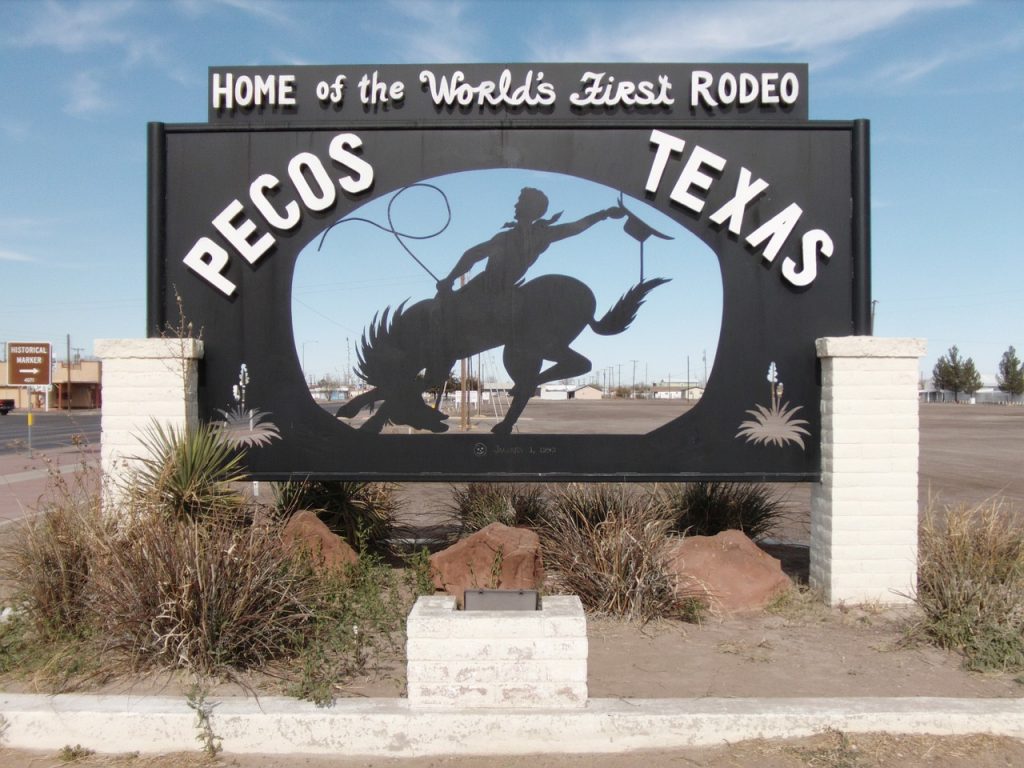Over the past few decades, Texas has experienced a significant transformation. Once known primarily for its cowboy culture, oil industry, and conservative politics, the Lone Star State has been undergoing a remarkable shift in demographics, economics, and politics. Many have begun to wonder whether Texas is on the path to becoming the new California. In this article, we will explore the various facets of this transformation and assess the validity of this claim.
Population Growth and Diversity
One of the most striking parallels between Texas and California is their population growth. Both states have experienced significant increases in population over the years. Texas, in particular, has seen a surge in its population, making it one of the fastest-growing states in the nation. The influx of people into Texas can be attributed to a combination of factors, including job opportunities, affordable housing, and a lower cost of living compared to California.
Texas’s population growth is not only driven by domestic migration but also by international immigration. The state has become a magnet for people from all over the world seeking economic opportunities and a better quality of life. This demographic shift has contributed to increased diversity in Texas, with a growing Hispanic and Asian population.
Economic Transformation
Texas has long been associated with the oil and gas industry, but its economy has diversified significantly in recent years. The state has become a hub for technology companies, with major players like Tesla, Apple, and Google expanding their presence in the state. Austin, in particular, has earned the nickname “Silicon Hills” due to its thriving tech scene.
The Texas economy benefits from a business-friendly environment, lower taxes, and a robust job market. These factors have attracted businesses and entrepreneurs from California looking to escape the high taxes and regulatory burdens of the Golden State. As a result, Texas has experienced an economic boom, with job growth outpacing many other states.
Political Landscape
The political landscape of Texas is another area where it shares similarities with California. While Texas has historically been a Republican stronghold, there has been a noticeable shift in recent years. Major cities like Austin, Dallas, Houston, and San Antonio have become increasingly progressive, with Democratic candidates gaining ground in local elections.
The 2020 presidential election saw Texas emerge as a battleground state, with a narrow margin of victory for the Republican candidate. Some political analysts believe that Texas may eventually become a swing state, much like California, where Democrats hold a dominant position in statewide politics.
Urbanization and Infrastructure
Texas’s urban areas have seen rapid growth and urbanization, reminiscent of California’s major cities. Dallas, Houston, and Austin are experiencing significant population growth, leading to increased traffic congestion and infrastructure challenges. This growth has also resulted in rising home prices and increased demand for housing, similar to what California has experienced.
Investments in transportation and infrastructure are critical to accommodating this growth. Texas has been making significant investments in expanding and improving its transportation networks, including highways and public transit systems, to alleviate congestion and accommodate the increasing population.
Environmental Concerns
Environmental issues have also come to the forefront in Texas, much like they have in California. While Texas remains a major player in the oil and gas industry, there is a growing awareness of the need to address environmental concerns, such as air quality, water conservation, and climate change.
Efforts to transition to cleaner energy sources and reduce carbon emissions are gaining traction in Texas. The state has significant potential for renewable energy production, with vast wind and solar resources. Initiatives to expand renewable energy production and reduce greenhouse gas emissions have been proposed and implemented, reflecting a shift toward more sustainable practices.
Education and Innovation
Both Texas and California are known for their world-class universities and innovation hubs. California has Silicon Valley, while Texas boasts a growing tech scene, particularly in Austin. The state’s universities, such as the University of Texas at Austin and Texas A&M University, play a crucial role in driving research and innovation.
Texas’s commitment to education and research is evident in the increasing investment in STEM (Science, Technology, Engineering, and Mathematics) programs and initiatives. The state is positioning itself as a leader in innovation and technology, similar to California’s historical role.
Texas has been experiencing a remarkable transformation in recent years, leading many to wonder if it is becoming the new California. The state’s population growth, economic diversification, political landscape, urbanization, environmental concerns, and commitment to education and innovation all contribute to this perception.
While there are undeniable similarities between Texas and California in these aspects, it’s essential to recognize that both states have their unique characteristics and challenges. Texas is not simply becoming a carbon copy of California but is evolving in its own distinct way.
As Texas continues to grow and change, it will be fascinating to observe how these developments shape the state’s future. Whether Texas fully embraces the “California model” or maintains its distinctive Texan identity, it is clear that the Lone Star State is in the midst of a significant transformation that will have far-reaching implications for its residents and the nation as a whole.
Challenges and Concerns
While Texas has experienced significant growth and diversification, it also faces several challenges and concerns that come with this transformation. These challenges are worth considering when evaluating whether Texas is truly becoming the new California.
Income Inequality: With economic growth and urbanization comes income inequality. Texas has one of the highest rates of income inequality in the United States. As the state attracts more high-paying tech jobs and industries, it must also address the issue of affordable housing and wage disparities to ensure that all residents benefit from the economic growth.
Education Funding: Despite its commitment to education and innovation, Texas has faced challenges in adequately funding its public education system. Ensuring quality education for all residents, regardless of their socioeconomic background, remains a pressing issue.
Healthcare Access: Texas has one of the highest rates of uninsured residents in the country. Expanding healthcare access and addressing the healthcare needs of its growing population are essential challenges for the state.
Environmental Sustainability: While Texas is making strides in renewable energy production and environmental conservation, it must continue to address its historical reliance on fossil fuels and the associated environmental challenges.
Transportation Infrastructure: As Texas’s population continues to grow, there is a need for substantial investments in transportation infrastructure to keep pace with urbanization and prevent worsening traffic congestion.
Unique Texan Identity
Texas has a deep and unique cultural identity that sets it apart from California and other states. The Texan identity is deeply rooted in its history, including the legacy of the Alamo, cowboy culture, and a sense of rugged individualism. This identity remains a strong and enduring aspect of Texas, and many Texans take pride in preserving their distinct cultural heritage.
While Texas is evolving and diversifying, it is unlikely to entirely shed its Texan identity. Instead, it may find ways to incorporate this heritage into its evolving identity, creating a fusion of old and new that makes Texas unlike any other state.
Texas as a Unique Entity
Texas is undoubtedly undergoing significant changes that parallel some aspects of California’s development. However, it is essential to view Texas as a unique entity with its own strengths, challenges, and cultural identity. Texas is not merely becoming a replica of California but is charting its path forward, shaped by its history, demographics, and economic opportunities.
The transformation of Texas presents both opportunities and challenges for the state and the nation as a whole. It serves as a reminder of the dynamic nature of states within the United States, each with its unique characteristics and contributions. Whether Texas becomes the new California or continues to evolve on its distinct path, it remains a state to watch and a significant player in the nation’s political, economic, and cultural landscape.
Implications for the Nation
The transformation of Texas carries significant implications for the United States as a whole. As the second-largest state by both area and population, what happens in Texas can have a ripple effect on the entire nation.
Political Influence: Texas, with its growing population and shifting political landscape, could become increasingly influential on the national stage. If the state continues to trend toward becoming a swing state, it will garner more attention from both major political parties, potentially altering national political dynamics.
Economic Power: Texas’ economic growth and diversification make it a vital contributor to the national economy. The state’s success can bolster the overall health of the U.S. economy, potentially impacting trade, job creation, and innovation.
Social and Cultural Dynamics: Texas’ evolving demographics and cultural shifts may influence broader social and cultural trends in the United States. The state’s ability to integrate its Texan identity with the changing landscape can set an example for embracing diversity and preserving cultural heritage.
Policy Innovation: Texas often serves as a laboratory for policy experimentation. As the state faces unique challenges associated with its growth, it may develop innovative solutions that other states can adopt. For example, its approach to energy transition and renewable resources could serve as a model for environmentally sustainable policies.
The Future of Texas
The future of Texas is filled with promise, potential, and challenges. Whether Texas becomes the new California or maintains its unique Texan identity will depend on various factors, including its ability to address its evolving needs while preserving its cultural heritage.
One thing is certain: Texas will continue to play a significant role in shaping the United States’ future. As the state grapples with the complexities of its transformation, it will contribute to the nation’s ongoing dialogue about economic growth, political diversity, environmental sustainability, and social change.
Texans, both native-born and newcomers, will be at the forefront of these discussions, and their decisions will have repercussions far beyond the state’s borders. Texas may not be California, but it is undeniably Texas—a dynamic, diverse, and ever-evolving state with a story that is still being written.
While Texas shares some similarities with California in terms of population growth, economic diversification, political shifts, and urbanization, it remains a unique entity with its cultural identity and challenges. Whether Texas becomes the new California or follows its distinct path, its transformation underscores the dynamic nature of American states and their enduring impact on the nation’s future. Texas, with its rich history and promising future, is a state to watch closely in the coming years.
The future of Texas with an influx of people from Silicon Valley moving there is an interesting and multi-faceted topic. This migration could have various implications and potential changes for the state, both economically and culturally.
Economic Impact: The arrival of tech professionals from Silicon Valley could lead to a significant boost in Texas’s tech sector. This could result in more tech startups, increased investment in technology and innovation, and a stronger economy overall. The state might see a rise in job opportunities not just in tech, but in supporting industries as well.
Cultural Shifts: With people from Silicon Valley, known for its progressive culture and innovative mindset, moving to Texas, there could be cultural shifts. This might include changes in attitudes towards technology, entrepreneurship, and potentially social issues.
Real Estate and Infrastructure: A significant influx of people could lead to changes in real estate markets, potentially driving up housing prices. It could also strain infrastructure and necessitate improvements in transportation, utilities, and public services.
Educational Opportunities: Increased focus on technology could lead to better educational opportunities, especially in STEM fields. Universities and schools might strengthen their tech programs to meet the new demand.
Political Dynamics: The influx of people from a region with different political leanings might influence local politics. This could affect policy decisions, especially those related to business, technology, and social issues.
Environmental Considerations: With a focus on technology and innovation, there might be an increased emphasis on sustainable practices and green technologies.
Community Engagement: Newcomers might bring different perspectives on community involvement and philanthropy, potentially leading to new community initiatives and partnerships.
Tech Industry Decentralization: This movement could signify a broader trend of decentralizing the tech industry from Silicon Valley, leading to more diversified tech hubs across the United States.
Overall, the movement of people from Silicon Valley to Texas could be a catalyst for significant changes, making Texas a new focal point for technological innovation and cultural transformation.







